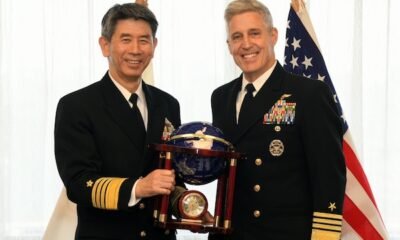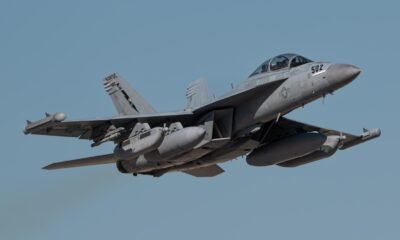Energy
Revolutionizing Operational Energy: NPS Pioneers with Cutting-Edge Educational Programs
The new Operational Energy (OE) master’s program at the Naval Postgraduate School (NPS) is addressing the changing landscape of energy needs in modern military operations. Its first graduates completed the program in September, equipped to meet challenges head-on.
Co-sponsored by the Navy’s Deputy Assistant Secretary for Energy and the naval directorate, the OE program supports naval strategies encompassing unmanned systems, climate security, and advanced educational access. This program innovatively merges three stackable, graduate-level certificates, available online through NPS.
Operational energy—essential for training, mobility, and sustaining military capabilities—is crucial for effective defense operations. Retired Marine Corps Col. Jim Caley, the current Director for Operational Energy at the Department of the Navy, emphasized the military’s high-energy needs, which underline the importance of efficiency.
“In combat, munitions, fuel and energy, and medical resources are critical,” said Caley. “History shows that energy determines who prevails in battle.”
NPS’s extensive expertise in OE positioned it as the ideal venue for this defense-focused degree. The institution’s technical know-how and operational experience facilitate innovative problem-solving and engineering solutions for the Navy.
An invaluable resource has emerged: “Operational Energy,” the first textbook from NPS’s Energy Academic Group, offering insights into market influences and technological advances through strategic analysis and case studies.
Arch W. McCleskey Jr., a civilian engineer with the Naval Sea Systems Command, is a current OE program participant. McCleskey oversees design and technical specifications for aircraft carrier systems, and credits the program with broadening his understanding of emerging technology impacts.
“I now grasp Fleet-wide technological applications better than ever,” McCleskey stated. “This enhances our design process to anticipate future needs for power, cooling, network capabilities, and safety.”
NPS faculty associate Colleen McHenry highlighted the rapid shifts in warfare that informed the program’s creation. “The degree equips graduates with skills critical for the modern battlespace,” McHenry remarked.
The OE program is accessible remotely to military officers, government civilians, defense contractors, and select international students, offering flexibility crucial for active-duty personnel.
The program’s culmination involves a final course focused on operational energy case studies, integrating the learnings from three certificates: directed energy, refuel logistics, and unmanned systems persistence.
“The tuition-free model underscores sponsor commitment to promoting OE education,” explained Dr. Arnold Dupuy, curriculum development lead at NPS. This funding model attracted students like McCleskey who might otherwise miss this learning opportunity.
The NPS Master of Operational Energy program exemplifies a significant advancement in preparing military leaders for energy challenges in modern warfare, thanks to its pioneering approach and focus on real-world applications.











